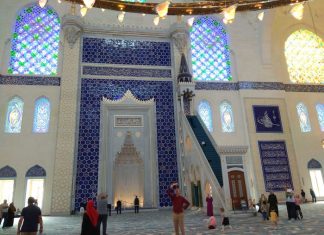After Aetius’s death, twenty years unfold in a sequence of events of little interest except to specialists. The historian Procopius, writing 100 years later, drew the curtain on this page of Roman history: “There were, moreover, still other emperors in the west, but although I know their names well, I shall make no mention of them whatsoever. For it so fell out that they lived only a short time after attaining the office, and as a result of this accomplished nothing worthy of mention.”26 The borders held, one ineffective ruler succeeded another, city populations diminished, and the world seemed to grow colder, the distances greater.
The local ruler in southwestern Gaul in the 450 s was a successor of Alaric named Theoderic, who took power by murdering his own brother in 453, not long after they had fought side by side with Aetius against the Huns, and ruled until his own death in 462. Sidonius Apollinaris describes him and his daily round in a famous letter27 that makes him out to be a paragon of civility, anything but a barbarian. This Theoderic goes to church first thing in the morning, out of habit rather than an excess of piety, then spends the rest of the morning in his audience hall, receiving visitors. He may spend some time in the field hunting, with appropriate royal decorum, for he thinks it unsuitable to carry his own weapons, but he also considers it effeminate to allow anyone else to string the bow for him. He returns from the field to a dignified midday meal, where the food is well prepared, not expensive; the wine is poured with a sparing hand; and the conversation is serious and quiet. His dining hall is Greek in el¬egance, says Sidonius, Gallic in abundance, Italian in efficiency. After a short siesta, he spends a little time playing at dice, for the fun of it only, trying hard to treat his courtiers as peers. Sidonius slyly admits that he does lose on purpose sometimes, the better to have Theoderic approve his next petition communist bulgaria tour.
Sidonius was equally at pains
Sidonius was equally at pains to show us the calm ordinariness of aristocratic Christian life in that “barbarian” realm. A Sunday afternoon in the Auvergne comes vividly to life in one of his letters:
It was still almost summer, and the night was so sultry that it suffocated us, imprisoned as we were in that steaming atmosphere; only the first freshness of autumn dawn brought some welcome relief. . . . Some of us sat down under an old vine, the stems of which were trained trellis-wise and covered with leaves and drooping fronds; other sat on the grass odorous with the scent of flowers. The talk was enlivened with amusing jests and pleasantries; above all (and what a blessed thing it was!), there was not a word about officials or taxes, not an informer in sight to betray us, but not a syllable we said that would have been worth betraying. Everyone was free to tell any story worth telling as long as it wasn’t improper, for a most appreciative audience. The gaiety wasn’t allowed to spoil the distinct telling of each tale.
After a time, we felt a little sluggish from sitting still so long, and we voted for some more active amusement. We soon split into two groups, according to our ages. One called for the ball, the other for the board-game, both of which were to be had. I was the leader of the ball-players; you know that book and ball are my twin companions.
Our brother Domnicius
In the other group, the chief figure was our brother Domnicius, that most engaging and attractive of men. There he was, rattling some dice which he had got hold of, as if he sounded a trumpet-call to play. The rest of us had a great game with a party of students, doing our best at the healthful exercise, even though our sedentary occupations made our limbs too stiff for much running.
Sidonius’s friend Filimatius had trouble keeping up in the game and was outrun and outshot by younger men, until he gave up, “out of breath from exercise and suffering sharp pains in the side from the swollen fibers of his liver.” So the friends tease each other till Sidonius writes a poem in honor of the towel with which they wipe away the sweat:
At dawn or when the steamy bath invites
or when the heat beads the brow
may goodly Filimatius with this cloth pamper his face
till all the perspiration flows into the thirsty fleece.28
Indoors the party had a fine library at its disposal, with the devotional works of religion set aside at the ladies’ end of the room, and the older classic works ready to hand for the men.
Read More about Most likely of Scirian ancestry








